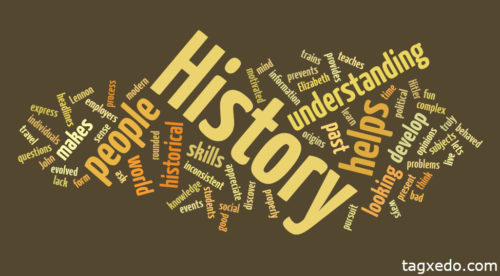I’m a Historian–I See Reason to Fear-and to Hope
ANGLO AMERICA, 24 Aug 2020
Joanne Freeman | The Atlantic - TRANSCEND Media Service
We can’t assume that all will be fine in the end, but history shows us that times of unrest are opportunities, too.
17 Aug 2020 –Historians don’t just study history. We construct it. We puzzle pieces into meanings. Aided by our instincts and experiences, as well as by our research, we make sense of other times, other nations, other peoples. In that sense, the writing of history is always personal.
Of course, this is hardly my first time living knowingly through “history.” As a historian of the nation’s founding, I’m always wide awake to modern insights. The events of 9/11, for example, gave me a new understanding of national vulnerability on the world stage. The new American republic was an infant among empires with the power to destroy it. As much as I had intellectually grasped that fact before, I now felt its consequences in a deep and cutting way.
My historical insights of today are more Cassandra-like. I sense the outlines of disaster—sometimes I see it plainly—but my words of warning often fall flat. Sometimes I myself don’t want to believe them.
This isn’t to say that I have no hope for what’s to come. I do. I know that times of unrest hold the potential for change—even dramatic change—that can right past injustices. I know that people with power won’t hold it forever, and that many repressive regimes destroy themselves by pushing too far too fast. I know the might of public opinion, and how politics from the ground up has countered power grabs time and again. We historians are connoisseurs of the promise inherent in change over time, as unsettling as such change can be.
I also know that before the United States can move ahead, it has to reckon with its past. It has to acknowledge the often profoundly deep roots of modern injustices, and recognize the long-standing assumptions and traditions that have made us who we are, for better and worse. America’s national identity is grounded in a shared understanding of American history—the country’s failures, successes, traditions, and ideals. Shape that narrative and you can shape a nation.
During times of intense change, that narrative has more power still. Thus the current outrage over the telling of our history. The United States is having a full-fledged identity crisis, and given the high stakes, the ownership of national history has become urgent and immediate. Culture war doesn’t begin to do this struggle justice. It is a battle for the soul of America and the survival of democracy, as many Americans know all too well.
This is not a battle of abstractions. It’s a deeply personal fight about inclusion and exclusion. We’re determining whose history counts and whose voices get heard, and reckoning with the many ways in which injustices—and ideals, met and unmet—have made us who we are. The fury of this debate grows from its implications. It’s an argument over what we want the United States to be.
The current clash over commemorative statues brings that argument to life. From roughly 1890 to 1920, people erected statues of key Confederates, staking claims in public spaces and endorsing the Confederates’ defense of slavery in the process; more than anything else, these statues express the values of the people who erected them. In the 21st century, people are taking down the statues to revoke that endorsement. Statues are public tributes to ideas in human form; they’re not objective history. Their meaning goes far deeper than their surface.
_________________________________________
We want to hear what you think about this article. Join the Conversation below.
Joanne Freeman is the Class of 1954 professor of history and American studies at Yale University, author of The Field of Blood: Violence in Congress and the Road to Civil War, and host of the webinar History Matters (…and so does coffee!).
Tags: History
DISCLAIMER: The statements, views and opinions expressed in pieces republished here are solely those of the authors and do not necessarily represent those of TMS. In accordance with title 17 U.S.C. section 107, this material is distributed without profit to those who have expressed a prior interest in receiving the included information for research and educational purposes. TMS has no affiliation whatsoever with the originator of this article nor is TMS endorsed or sponsored by the originator. “GO TO ORIGINAL” links are provided as a convenience to our readers and allow for verification of authenticity. However, as originating pages are often updated by their originating host sites, the versions posted may not match the versions our readers view when clicking the “GO TO ORIGINAL” links. This site contains copyrighted material the use of which has not always been specifically authorized by the copyright owner. We are making such material available in our efforts to advance understanding of environmental, political, human rights, economic, democracy, scientific, and social justice issues, etc. We believe this constitutes a ‘fair use’ of any such copyrighted material as provided for in section 107 of the US Copyright Law. In accordance with Title 17 U.S.C. Section 107, the material on this site is distributed without profit to those who have expressed a prior interest in receiving the included information for research and educational purposes. For more information go to: http://www.law.cornell.edu/uscode/17/107.shtml. If you wish to use copyrighted material from this site for purposes of your own that go beyond ‘fair use’, you must obtain permission from the copyright owner.
